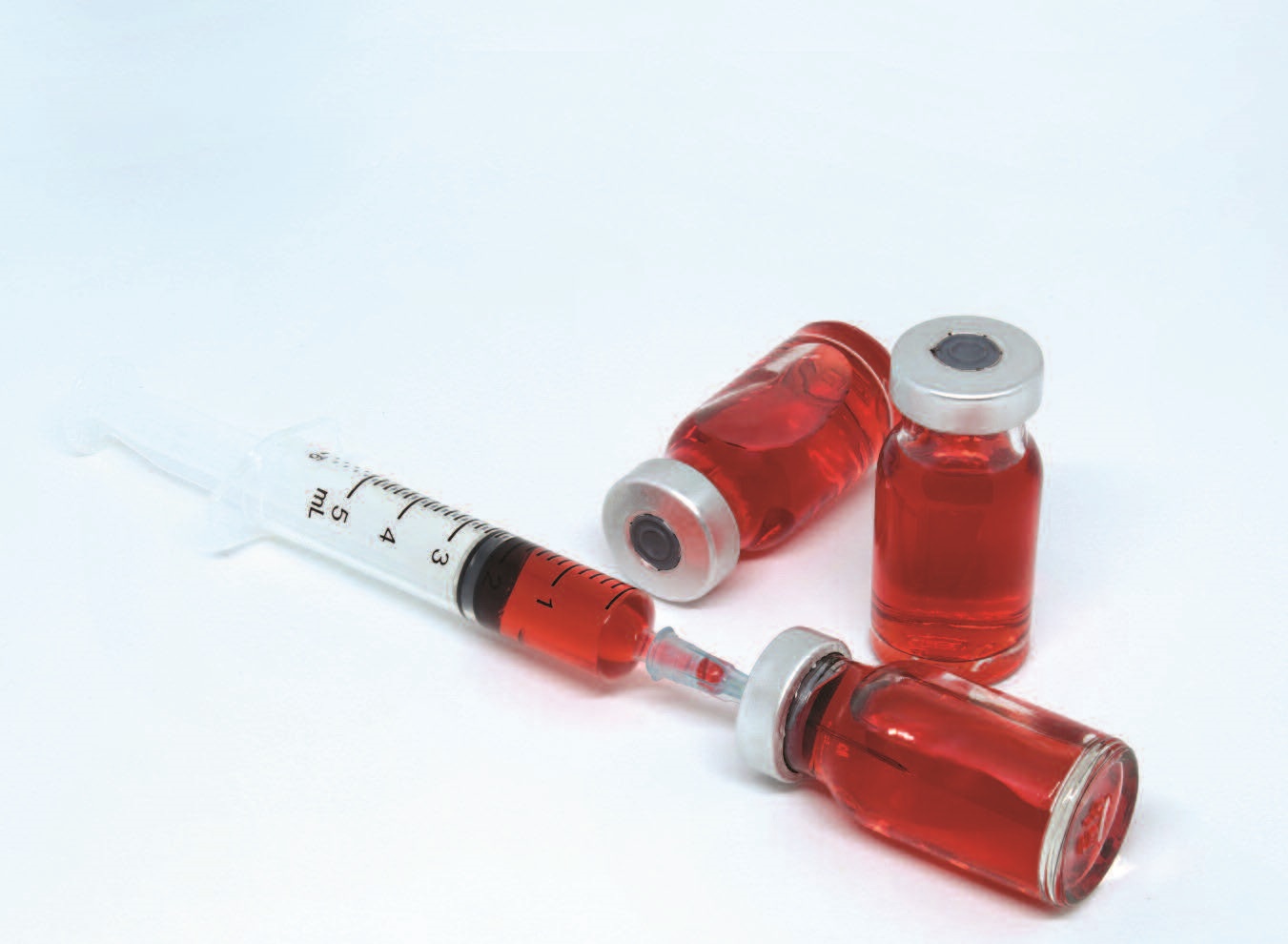My unlikely encounter with a silent epidemic.
By Dree Andrea
Twenty-five years had passed since my last visit to a doctor’s office. Which is why, in 2016, finding myself in a constant state of fear and paranoia, the thought of doing so never even crossed my mind. It happened practically overnight. I grew increasingly afraid of leaving my house. My dreams were so vivid that I started to confuse nightmares with reality. In order to (literally) save the day, my subconscious ordered the insomnia that followed. After five days without sleep, however, I became terrified of my fellow human beings. I had always considered myself a grounded, healthy, joyous person who met all the responsibilities that come with living life. I did my best to remain calm and logical, but I was also aware that my emotions were on the verge of total collapse, and would get the better of me sooner rather than later.
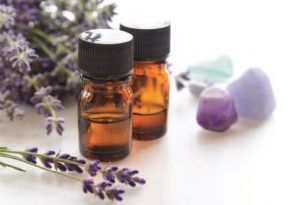 A traumatic experience with the medical community early on in my life in Amsterdam (where I was born and raised) had motivated me to study a variety of holistic healing modalities after I came to America. When health issues arose that I could not address myself, I had worked successfully with a chiropractor and an acupuncturist, but never a traditional GP. Once, while experiencing severe pain after being clipped by a hit-and-run driver, a colleague convinced me to take an aspirin. It made me so sick that I decided to never touch over-the-counter medication again. Arnica gel for sprained ankles and Old Indian Wild Cherry bark for severe coughs were as far as I would go, no matter how grave the situation. I was a happy, healthy artist and documentary filmmaker living in the States for over 20 years when I began to “lose my mind.”
A traumatic experience with the medical community early on in my life in Amsterdam (where I was born and raised) had motivated me to study a variety of holistic healing modalities after I came to America. When health issues arose that I could not address myself, I had worked successfully with a chiropractor and an acupuncturist, but never a traditional GP. Once, while experiencing severe pain after being clipped by a hit-and-run driver, a colleague convinced me to take an aspirin. It made me so sick that I decided to never touch over-the-counter medication again. Arnica gel for sprained ankles and Old Indian Wild Cherry bark for severe coughs were as far as I would go, no matter how grave the situation. I was a happy, healthy artist and documentary filmmaker living in the States for over 20 years when I began to “lose my mind.”
Of course, my American friends had long questioned my sanity, albeit jokingly.

www.istockphoto.com
My belief that diet is the key to physical, emotional and mental health has made me an object of curiosity. On occasion, I have been called stubborn or even stupid for living my holistic lifestyle. I ate solely organic food and avoided sugar, coffee, and alcohol. I also exercised and practiced yoga and mindfulness. I learned through my own success—and as a graduate of the Natural Gourmet Institute in New York—that staying healthy (and doctor-free) takes a lot of time and attention, willpower and discipline. Eventually, I started coaching others—acquainting each client with the tools and techniques necessary to discover the lifestyle that worked best. In some cases, I imparted knowledge I had acquired in other areas, like Reiki, a form of hands-on healing developed in Japan. I also believed the key to balance and happiness was connecting to your creative self, whether through journaling, painting, cooking, or some other passion. I held art and cooking classes, as well as dream workshops. I was a Jack-of-all-trades with a stack of certificates, but no conventional degree. Even so, as the years went by, with a track record of positive reactions and referrals, I was satisfied that my degree in Life Experience was an acceptable alternative.
On paper, I was the last person who should have been swept away by this tsunami of negative energy. Over the previous seven years, I had dealt successfully with a series of unexpected stressful events, including a separation, the passing of a few dear friends, and working with a psychotic life-coaching client who turned out to be far more dangerous than I had been willing to admit while working with him. Also, I had recently made a major quality-of-life decision that I considered to be very positive. After two decades in a New York rental apartment, I had initiated a project that opened up the opportunity to purchase a fairytale weekend home in New Jersey, the perfect place to one day create a coaching practice and writer’s den. I knew the city eventually would become too demanding for the sensitive soul that—at age 50—I recognize that I am.
Most of my life I had been told to “not be so sensitive” and to “get over myself.” In 2010, however, I learned from one of the professionals with whom I worked that I am indeed an unusually (physically and emotionally) sensitive individual. Which is to say that I need a little less stimulus and a little more nature than the average person. So the location of the house—in a national historic district, with unpaved roads winding up and around a hillside overlooking the ocean, an absence of streetlights, friendly neighbors and lots of wildlife—was a dream come true. As technology has rushed forward, time has barely moved there. I saw it as a new phase in life. I hoped to find the community I missed in New York and I intended to practice what I preached, in order to eventually obtain my “Master’s” in Life Experience. Even if the unsettling experience with the aforementioned coaching client had taken place in this house, when my emotions started to unravel, I still felt peaceful there, protected by nature, thankful for this safe haven.
One day in November 2016, I entered my home and something seemed terribly wrong. Panic struck me like a bolt of lightning. I ran outside, finding myself standing under a full moon, in freezing weather, without a coat. The chill I felt was not from the cold. The house was haunted. The hill was haunted. “You’re going crazy,” I said out loud, trying to compose myself. “No one knows about it yet. And you better make sure they don’t find out!” Hearing my own words grounded me. I would rather die than get locked away in a psych ward. Thinking of the birds, crickets and squirrels with whom I cohabitate in this magical place, I took off my shoes and connected with Mother Earth. I had trained with shamans in Peru a decade earlier; Patcha Mama would come to my rescue, I just knew it. I had never felt so grateful in my life. “I’m no lunatic,” I declared, looking up to the huge, bright full moon.
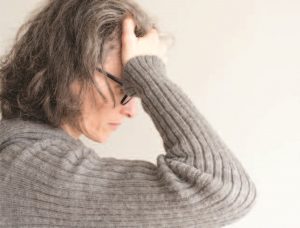
www.istockphoto.com
However, in the ensuing months, I grew more and more tired. I started to lose my ability to concentrate or focus. I had completely lost my grip. I reacted to everything like a deer in the headlights. My self-confidence crumbled. It was like living outside of a box made of unbreakable, soundproof, see-through glass looking in, but at the same time being locked up inside that very same box, reaching out to myself for help. Neither of us could find a door to even knock on. I was a documentary filmmaker trapped in a horror movie.
Deep down inside, I sensed that I had just lost my way. I never lost my identity. Yet it was hard to continue to believe in myself as more and more people who had known me for a long time, when confronted with my personality change, seemed to be looking to create a little distance. I kept hearing that I appeared pretty healthy and, therefore, it could not really be that bad. Some suggested antidepressants, others that I get a dog. In my world, those were not solutions. I just wanted people to be part of my life again; I was desperately looking for support from humans, not animals. A caring neighbor who had attended and appreciated my dream workshops—and who was familiar with my diet— offered up another idea. She is all about finding balance, but seeks it in different places, in different ways than I do.
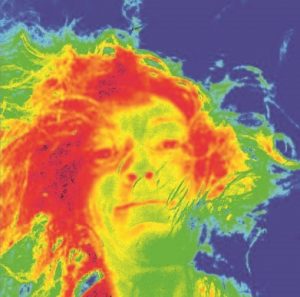
Dree AndreaShe suggested I might have a vitamin deficiency. The one thing I had not considered or tested were the levels of my vitamins, minerals, and hormones.
So it came to pass that I found myself in an examination room for the first time since the early 1990s. I was terrified of how an M.D. might approach whatever the outcome of the lab work would be but fortunately managed to find a doctor who was open to holistic modalities. It turned out that I did indeed have severe vitamin deficiencies—caused by long-term stress, which had taken its toll on both my sleep as well as my digestive system. Due to malabsorption, she said, I was dangerously low in B-12.
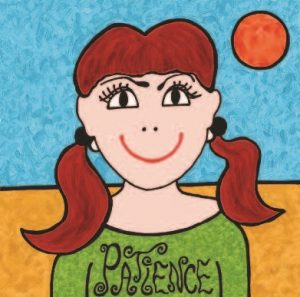
Dree Andrea
It turns out B-12 is a really big deal. It is one of the essential vitamins affecting various systems of the body. Neurologic, hematologic, gastrointestinal, as well as psychiatric symptoms, arise in cases of deficiency. The reason? Neurotransmitters communicate information throughout the brain and body, relaying signals between neurons. The brain uses neurotransmitters to let your heart know to keep beating, your lungs to inhale and exhale, and your stomach to digest. A lack of B-12 can also affect mood, sleep, concentration, and weight. Vitamin B-12 helps increase brain serotonin and dopamine levels because it is a cofactor in the synthesis of these neurotransmitters, as well as in norepinephrine and gamma-Aminobutyric acid (aka GABA)—the chief inhibitory neurotransmitter in the central nervous system. In humans, GABA also regulates muscle tone.
As I read up on B-12 deficiency, it was like reading my own story: Although not common, psychiatric symptoms may precede the physical ones, including fatigue, forgetfulness, loss of muscle strength, a feeling of pins-and-needles and change in vision. And wouldn’t you know it? The agitation, irritability, negativism, confusion, disorientation, amnesia, impaired concentration and attention and insomnia that a B-12 deficiency can also cause is often misdiagnosed as depression, bipolar or panic disorder, psychosis, phobias, or even dementia.
My doctor administered my first B-12 shot that very day. She warned me that it would take quite some time to start feeling better—up to six months. Me being me, I rushed home to do more research and discovered an alarming number of stories about people who had taken years to recover. A few had to get B- 12 shots for the rest of their lives.
As of December 2017, I had completed my fourth month of replenishing. From onset to diagnosis, almost a year had passed. I am glad to know that I am not going out of my mind.
During those months of self-doubt and uncertainty, a friend convinced me, quite forcefully, to see a therapist who, in turn, referred me to a trauma therapist. Those sessions actually left me questioning whether I would rise out of the ashes ever again. Therapy is not for everyone, and I sensed that this, at least for me, was not the right path. I continued exploring other options to find answers. Looking back, what now seems “crazy” to me is that going down the therapy path might very likely have resulted in a prescription for mood-altering psychotropic medication before my levels of vitamins, minerals, and hormones had been checked out first
And it is dawning on me that B-12 deficiency may be a silent epidemic. According to some studies, four in ten Americans, for example, are not getting enough B-12, while 60 percent of vegetarians and 90 percent (!) of vegans apparently are deficient. A growing number of medical professionals and therapists have also begun talking about a vulnerable third “high-risk” group: highly sensitive people, to which I belong. We perceive emotions, thoughts, and moods, energies, in such an intense way that we are often physically affected or even depleted by other people or situations, or by stimuli such as lights, sounds, or wifi radiation. In my case, adding a B-12 deficiency to an often confusing energy mix could have led to my personal short-circuit. Honestly, I felt I was blowing an emotional fuse. Had I wavered from the belief that I was not mentally ill, I could easily have ended up misdiagnosed with a mental disorder, on lithium or some other antidepressant.
In fact, I looped back to my physician after noticing my mood sink a few days after each B-12 injection—and then rise again while taking the sublingual (under-the tongue) B-12 in between shots. After a little more research, a new gameplan was formulated with the help of an orthomolecular practitioner, which involved no injections and a combination of two different types of sublingual B-12, 3000 mcg methylcobalamine and 3000 mcg adenosylcobalamine. Each one includes folic acid and is held under the tongue for a half-hour for optimal absorption.
Long story short, B-12 deficiency can be a complicated and highly personal journey. And because it is not part of the standard ordered lab work, it requires asking your doctor to test for B-12 if you suspect you have symptoms.
While my viewpoints on health and wellness have not significantly changed, I understand that the mind-body connection is not for everyone. I remain firm in my belief that physical problems arise as a result of something emotionally off-balance in life. During this whole ordeal, I knew that the path back to my old joyous and energetic self would require continuous truthful self-exploration, a combination of the right foods and supplements, and most of all patience. I am still not a huge fan of doctors, but I do recognize the value of a second opinion.
READ THE LABEL
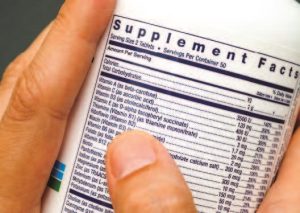
www.istockphoto.com
My blood work revealed a number of vitamin and mineral deficiencies, for which I took various supplements to replenish. It was suggested that I try melatonin to help me sleep. That first night I woke up more often, feeling more severe disorientation and terror than ever before, so I immediately stopped taking it. A few weeks prior to this writing, I suddenly recalled that in my shamanic education we were told to take melatonin in combination with B-6 to enhance practicing lucid dreaming and astral travel. I myself had chosen not to take the supplements at the time. I decided to check the label on the bottle I bought a year ago. Sure enough, on the front in huge letters it said MELATONIN, but in examining the small print I found that the capsules contained a whopping 10 mg of B-6—500% of the daily recommended value!—in addition to the 1 mg of melatonin in each pill. I was shocked to find, returning to the health food store, what other ingredients are added to many vitamin supplements without a clear indication. Turns out we have to start reading those labels as carefully as we read the ones on our food.
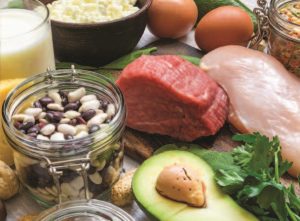 HUNTER GATHERER
HUNTER GATHERER
During my ordeal, a number of my friends brought up the fact that I do not eat meat, which is a good source of B-12. The suggestion I think is that my wounds, on some level, were self-inflicted. It is true that vegans and vegetarians are more likely to be confronted with this problem. Having been a vegan myself for about a year in 2005 during my education as a chef, I respect their choice, even if it means committing to a regimen of B- 12 injections to avoid killing animals. I have opted for eating fish and organic eggs again, thanking the fish and chickens for their offerings. And I have upped my intake of sardines and salmon, which are two of the best B-12 sources, making peace with the fact that I am, like many other animals, a hunter, and gatherer.
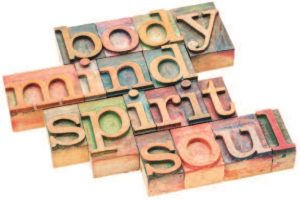 Editor’s Note: Dree Andrea is an international award-winning filmmaker, artist, and energy coach working in New York and New Jersey. Her B-12 journey has taken her in some fascinating directions and led her to some eye-opening studies on B-12 deficiency. There is research that suggests that her hypersensitivity may have been further amplified by the fact that her mother carried twins, but that her sibling died in the womb. She is currently enrolled in the only training that specializes in coaching highly sensitive people and empaths. Dree is working on her second book, The Empath and the Psychopath, and on the documentary Losing Your Marbles; A B-12 Side Effect. Dree can be found at dreeinthebigcity.com.
Editor’s Note: Dree Andrea is an international award-winning filmmaker, artist, and energy coach working in New York and New Jersey. Her B-12 journey has taken her in some fascinating directions and led her to some eye-opening studies on B-12 deficiency. There is research that suggests that her hypersensitivity may have been further amplified by the fact that her mother carried twins, but that her sibling died in the womb. She is currently enrolled in the only training that specializes in coaching highly sensitive people and empaths. Dree is working on her second book, The Empath and the Psychopath, and on the documentary Losing Your Marbles; A B-12 Side Effect. Dree can be found at dreeinthebigcity.com.

